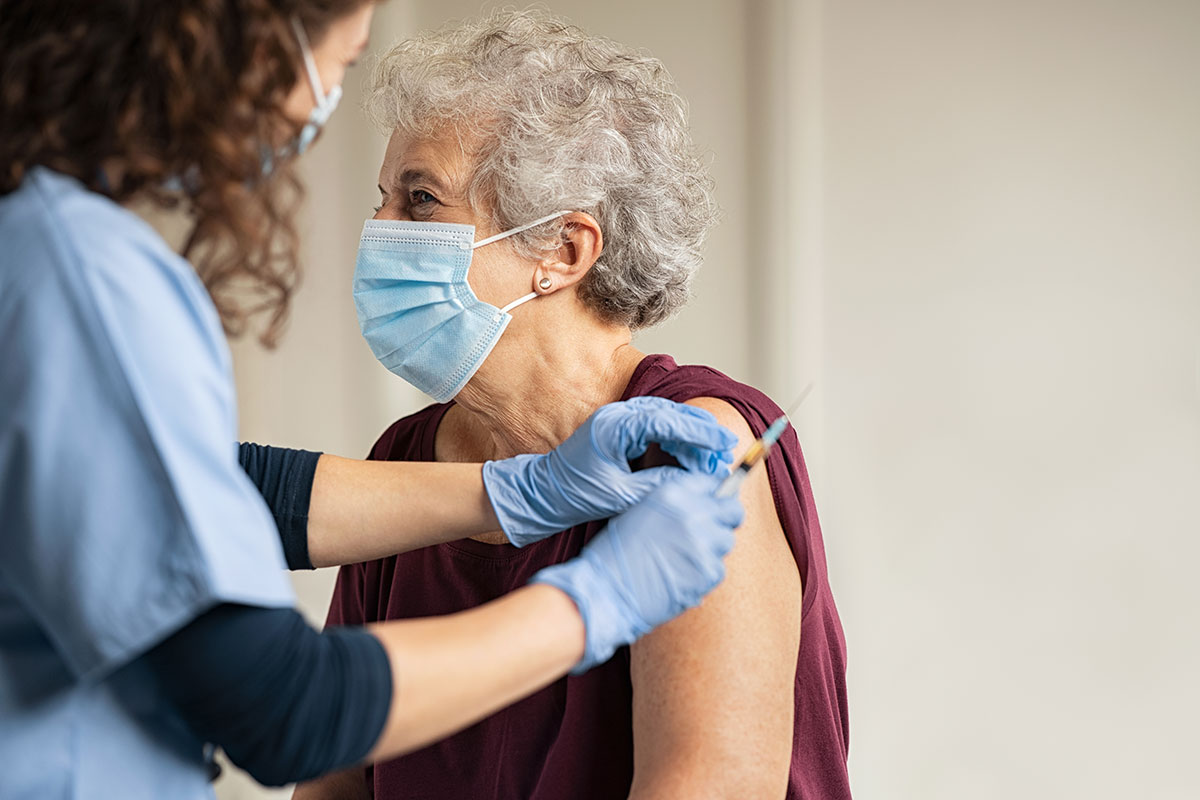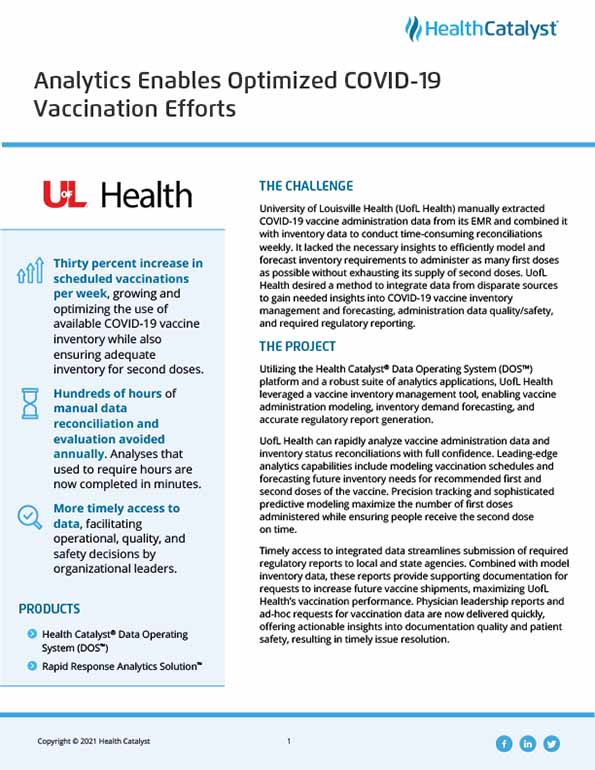University of Louisville Health faced challenges reconciling COVID-19 vaccine data and forecasting inventory needs. Implementing a vaccine inventory management tool gave the organization valuable data analytics to model vaccination schedules, forecast supply needs, address quality and safety concerns, and effectively generate regulatory reports.
University of Louisville Health (UofL Health) manually extracted COVID-19 vaccine administration data from its EMR and combined it with inventory data to conduct time-consuming reconciliations weekly. It lacked the necessary insights to efficiently model and forecast inventory requirements to administer as many first doses as possible without exhausting its supply of second doses. UofL Health desired a method to integrate data from disparate sources to gain needed insights into COVID-19 vaccine inventory management and forecasting, administration data quality/safety, and required regulatory reporting.
Utilizing the Health Catalyst® Data Operating System (DOS™) platform and a robust suite of analytics applications, UofL Health leveraged a vaccine inventory management tool, enabling vaccine administration modeling, inventory demand forecasting, and accurate regulatory report generation.
UofL Health can rapidly analyze vaccine administration data and inventory status reconciliations with full confidence. Leading-edge analytics capabilities include modeling vaccination schedules and forecasting future inventory needs for recommended first and second doses of the vaccine. Precision tracking and sophisticated predictive modeling maximize the number of first doses administered while ensuring people receive the second dose on time.
Timely access to integrated data streamlines submission of required regulatory reports to local and state agencies. Combined with model inventory data, these reports provide supporting documentation for requests to increase future vaccine shipments, maximizing UofL Health’s vaccination performance. Physician leadership reports and ad-hoc requests for vaccination data are now delivered quickly, offering actionable insights into documentation quality and patient safety, resulting in timely issue resolution.
UofL Health’s COVID-19 vaccination tracking and reporting solution provides it with the necessary data analytics to quickly and accurately model vaccination schedules, forecast vaccine supply needs, identify and resolve quality/safety concerns, and generate required regulatory reports.
"The DOS platform at UofL Health brings data together from several core applications allowing the organization to provide a quick turnaround on critical solutions, including the COVID Vaccination Administrator. The deployment of DOS has enabled cutting-edge, timely insights to improve clinical and financial outcomes."
- Alok Chaudhary, AVP, Business Intelligence & Data Analytics, Information Technology




